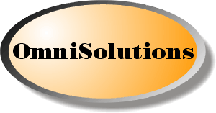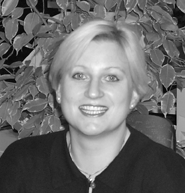 |
 |
OMNI Solutions Sponsor Message |
|
|
|

Alexandra Wiedenmann
|
Creating new customs and customers in
Europe
European customs have a way of breaking ground for the
rest of the world, and that trend has been true for the world of the
e3000. In managing a territory with more than a dozen distributors
and languages, leaders for the European e3000 business face
challenges in channels and communications that make managing a
country like the US seem simple by comparison. Earlier this year the
e3000 got a new business leader for Europe in Alexandra Wiedenmann,
Regional Business Manager for the Commercial Systems Division (CSY).
She joined the CSY Europe team four years ago at its Germany
headquarters, managing the Client Server program that gave her good
working relationships with Europe’s partners. Last month Wiedenmann’s team of managers presented
a full day of customers, telling their stories about Internet and
Web-based successes, at the “Let’s Go e!” seminar in
Amsterdam. It was typical of the kind of positive and forward-looking
efforts of the European CSY team. Years ago, then-general manager
Harry Sterling cut this group loose to tailor its message and
business practices to a market very different from North America. For
example, at the seminar we spotted a Web site full of in-depth data
about virtually every Web-enabling tool available for the e3000,
products tested and researched and by French CSY partner Cheops
Technology. We asked Wiedenmann during a break in the seminar how
Cheops’ information will help the e3000 customer in Europe, and
how this sort of thing might set an example for similar programs in
the rest of the e3000 community. Actually we had a difficult year. We recognized that
people really invested the year before, so this year was difficult.
But we have seen in the last month that it’s moving again, and
the Internet projects and all the ideas around the Internet are
taking off. It’s really positive. It
depends, and it’s different from country to country. We have
some countries where we have lots of standard applications, and we
have other countries where lots of the customers have home-grown
applications. What we had to learn was that it is not so easy to
bring a solution to another country. It’s a local language
issue, how they do business, it’s really difficult. With some
applications like the Smith-Gardner application it works out, but
with others it’s really difficult.
It was their plan to concentrate on the UK first, and then
they want to move forward in the rest of the countries. They have
enough business for the moment in the UK. We just won a new customer
to HP in Denmark in Lego, the toys for kids. They went live three
weeks ago, and all the end-users can order directly over the Internet
their Lego kits. If you want blue bricks, you can put an order
together online. Since they’re a new customer to the 3000,
it’s great.
You see some attrition, but it’s kind of stable. We are
winning some new customers, and there are partners in Europe winning
new customers in specific markets. It’s the same in Europe. Yes, some customers are
waiting, at the moment they don’t have a need for new systems,
so they can afford to wait. Others are still buying. One thing
we’ve done in Europe, and this is just for Europe, is our Bridge
Program. That’s where a customer who needs more power at the
moment and wants to buy a new system buys it now. And then as soon as
they order an A-Class or N-Class e3000, they get some of their money
back. We’re rewarding him for having to invest twice, in order
to avoid having customers wait to buy.
I think it was kind of similar. I think the Oracle marketing
message was a bad thing, but we really couldn’t do anything
about it. We wanted to influence it and change their minds, but we
didn’t have any chance to turn their minds around. I think from
a business point of view the influence was big. It was more of the
marketing message. For awhile there was some discussion of it [by
customers], but at the moment it’s quieted down. For us it was really difficult, because we’d tried
for a long time to convince Oracle, but we had no message to give the
customers, yes or no. At the end, the impact wasn’t too big
— less than we thought. Yes, we are thinking of putting together a success story
about what they are doing there. But that might be difficult to
position. Overall for HP, Europe is advanced in this area. On the 3000 side it’s a great message we can deliver. It’s possible with the 3000, but I’m not sure people will really use those possibilities. It’s nice that it’s possible, and there’s already one solution there [from Smith-Gardner]. Overall, I think the mobile business is just getting started. Definitely Europe is advanced in this. |
Copyright The 3000 NewsWire. All rights reserved.
